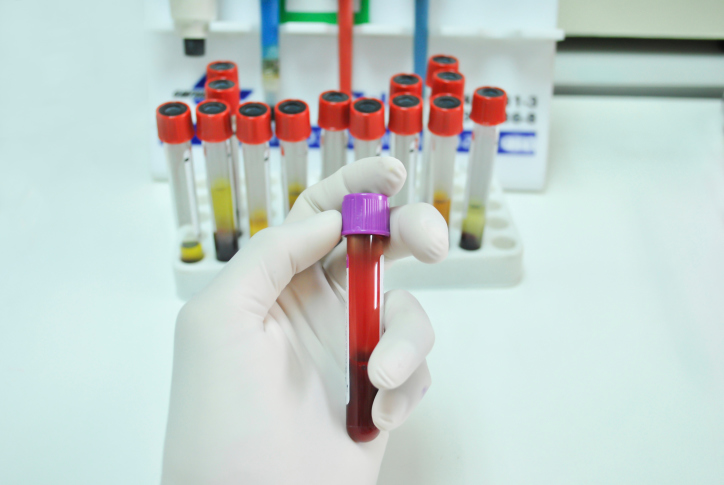
Study suggests kinder, gentler method of testing celiac patients
Serum I-FABP Marker Study Suggests Kinder, Gentler Method of Testing Celiac Patients for Intestinal Damage
Celiac disease patients must often go through an invasive and costly biopsy procedure in order to determine the existence and extent of intestinal damage resulting from their condition. A new study suggests that a simple blood test may be on the horizon that will eliminate the need for follow-up biopsies in many cases.
The February 2013 published study explores the potential of a new serological test to measure intestinal damage. If it is possible to successfully translate the results into a clinical diagnostic test, it may change the way physicians seek follow-up information once the initial diagnostic biopsy is over. It may even reduce or eliminate the need for invasive, and expensive, secondary biopsies in many instances.
A recent study titled “Serum I-FABP as marker for enterocyte damage in celiac disease and its relation to villous atrophy and circulating autoantibodies” and found in the February 2013 journal, Alimentary Pharmacology and Therapeutics, indicates that the time may be approaching.
The study’s research team included professionals representing various departments at VU University Medical Centre in Amsterdam and Maastricht University Medical Centre in Maastricht.
Current Testing Standard
The current standard for testing patients for celiac disease begins with the IgA-tTG blood test. However, this test is limited in scope as it can only assess whether auto-antibodies are being produced. It is not able to ascertain the existence or extent of intestinal damage.
The current method involves taking a biopsy of the small intestine. The biopsied material is then evaluated to determine whether tissue damage is present and then to categorize the extent of villous atrophy, crypt hyperplasia, and intraepithelial lymphocytes, using the Marsh Scale, all hallmarks of the autoimmune damage in celiac disease.
New Serological Test Study
The study involved measuring serum intestinal fatty acid binding protein (I-FABP), a cytosolic protein in mature enterocytes which is released into circulation upon enterocyte damage. Serum I-FAB was measured in 96 patients with celiac disease (confirmed by biopsy) and compared with the I-FABP levels of 141 healthy control patients. The study concluded that the I-FABP levels of patients with celiac disease were higher and that the levels also correlated with the level of tissue damage indicated by the Marsh Scale.
Another interesting fact discerned from the research is that patients’ I-FABP scores were highest immediately prior to their celiac disease diagnosis. Those who adhered to a gluten-free diet for six months experienced significantly lower I-FABP scores and those numbers continued to decline after one year. These numbers do remain higher among celiac disease patients than control patients, even three years after diagnosis, indicating that despite normalization of antibody levels, intestinal damage can be ongoing.
The Takeaway
The research lends confidence to the idea that it may be possible to test celiac disease patients for intestinal damage without requiring a costly and invasive surgical procedure. The welcome promise of a simple non-invasive blood test may eliminate the need for follow-up biopsy altogether, and may be forthcoming. In particular, in poor communities or rural areas where the biopsies are not always available or are too costly, the blood tests would significantly improve the management of patients with celiac disease in these target groups.
This original article is made possible by Gluten Free Therapeutics. Our mission is to educate, inform, and provide the most effective nutritional products possible to allow those with celiac disease and serious gluten intolerances to heal their bodies. CeliVites complete line of superior gluten free supplements includes multivitamin/multimineral supplements, iron supplements, and calcium supplements for people living with celiac disease. All CeliVites products are designed to help you heal, restore and rebuild your body, because going gluten free isn’t enough!
Comments ()
















This is one awesome blog post.Really thank you! Want more.
insurancewhisper